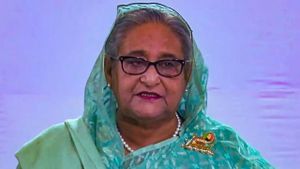The Australian government is grappling with the complex issue of regulating social media access among minors, particularly those under 16 years of age. Recent discussions within parliamentary circles suggest a significant move toward restricting younger children from accessing popular platforms such as Facebook, Instagram, and TikTok. This initiative has sparked intense debate about its potential benefits and drawbacks for youth.
Recently, Australia’s states and territories have come together to propose legislation aimed at shielding young users from the risks associated with social media. The proposed legislation would ban individuals under 16 from accessing major social media platforms, with plans to introduce this law to parliament shortly.
Following the unanimous support from various states, the government intends to implement this regulation within two weeks of the parliamentary proposal. Should the legislation pass, the age restriction would officially take effect one year later, allowing social media companies ample time to devise technological solutions to enforce this age limit.
While the legislation aims to protect underage users from online hazards, such as cyberbullying, inappropriate content, and emotional distress, experts have come forward to share their perspectives, weighing both positive and negative aspects of such drastic measures.
On one side of the debate, proponents like parenting coach Liat Hughes Joshi argue fervently for the ban, citing "compelling evidence" indicating the negative impacts social media has on children. According to Hughes, numerous studies highlight the adverse effects, including exposure to harmful content, unrealistic body expectations, and troubling social interactions. “There is no doubt,” she states, “that reducing their exposure could significantly improve their mental health and overall well-being.”
Contrarily, critics of the ban express concerns about the feasibility and potential pitfalls of enforcing such legislation. They argue banning minors from these platforms may inadvertently drive them to seek out less regulated sites. Social media has become intertwined with social interaction among peers, and cutting access could alienate children, hindering their ability to connect with friends.
Labor MP Sharon Claydon, chairing the parliamentary inquiry, shared insights on the necessity of empowering users—particularly young people—to adjust their social media experience. “While we strive to create safer online spaces, we must engage young users actively. They deserve to have their voices heard when considering protective measures,” she emphasized.
The parliamentary committee investigating these matters has also put forth recommendations on improving privacy protections and enabling users, including minors, to alter, reset, or entirely disengage from algorithms steering their online experiences. The committee firmly believes such measures are more effective than simply locking kids out of these platforms.
Despite the conflicting views on the proposed ban, one point resonates clearly among lawmakers, researchers, and advocates: immediate action is requisite to improve the online safety of all users, particularly the vulnerable youth demographic.
Real-life accounts from teens confirm the reality of these concerns. Many young people feel overwhelmed with online expectations and pressures, facing issues like cyberbullying, unrealistic portrayals of life and bodies on social media, and harmful trends circulating on platforms. Some have shared personal stories of feeling powerless against the constant barrage of negativity online.
One high school student, who wished to remain anonymous, expressed feelings of anxiety as she navigates her friendship circle predominantly online. “It’s like you’re always on display, with everyone comparing each other's lives. I can't even escape it at home,” she conveyed.
Not all opinions favor the ban. Many argue about the importance of digital literacy over outright restrictions. Advocates for education reform and social media literacy suggest teaching young users how to navigate these spaces safely and responsibly rather than preventing access altogether.
Evan Phelan, head of digital education at the Australian Institute of Education, voiced reservations about restricting access as he said, “Instead of banning, let’s focus on educating our youth about safely engaging with social media. Knowledge is power.” He contends the objective should be about equipping kids with tools to manage their online lives, rather than shutting them out from beneficial interactions.
The effectiveness of such restrictive laws is yet to be determined. Similar proposals have witnessed mixed outcomes globally, where bans did not yield the expected results. Some countries have adopted stricter regulations, but these measures often encounter challenges, such as enforcement difficulties and users employing various methods to bypass age restrictions.
The discussions around such legislative action are far from settled. Many entities, including schools, parents, and advocacy organizations, continue to engage all levels of government about the best approach to protecting children online. Stakeholders are calling for inclusive talks with young people themselves, arguing for solutions co-created with those directly affected by the outcomes.
This proposed social media ban is depicted as both a protective measure and potentially punitive. It remains to be seen whether this initiative will successfully navigate the complex world of social media regulation, but one thing is clear—legislators are increasingly acknowledging the need for thoughtful action to safeguard their online youth.
Finally, experts all agree: Any measure concerning social media and youth must prioritize responsibility, user education, and, most critically, the voices of the minors themselves. If the discussion about their safety is to be meaningful, young people must have input.



